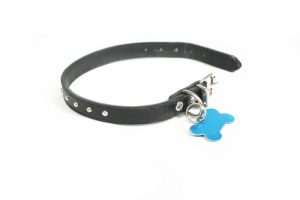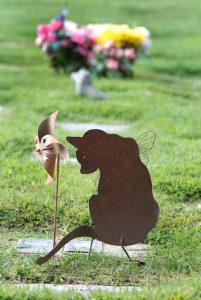A Personal Reflection: The Benefits of Planning for A Pet’s Memorial

The profound bond we share with our pets is an extraordinary aspect of our lives, one that often transcends the limits of mere companionship. They are our confidants, our helpers, and our unwavering sources of joy. Sadly, the cycle of life also means that we must face the poignant reality of loss. Just as we honor the lives of our human loved ones, planning a funeral service or memorial for our beloved pets becomes an essential act of love and respect for the time and joy they have given us. This rite of passage is not just about saying goodbye; it’s an opportunity to celebrate their unique spirit and the immeasurable impact they left on our lives.
In recent years, the conversation around pet loss has shifted from one of quiet sadness to open acknowledgment and celebration of these cherished relationships. More pet owners are recognizing that a thoughtful farewell can bring closure and healing to their grief. Whether it’s a tranquil gathering in the backyard, a ceremonial burial at a pet cemetery, or a simple scattering of ashes in a favorite spot, these rituals can help us navigate the tumultuous waves of grief. As we reflect on the significance of our pets, we begin to see the value of these ceremonies—not just as a farewell but as a ritual of appreciation for all the joy and companionship they bestowed upon us.
Planning a memorial also gives us the chance to reclaim agency in a process often clouded by despair. It enables us to craft a personalized experience that resonates with both the life our pet led and the love we shared. Choosing the elements of a service allows us to express our feelings creatively—through heartfelt eulogies, favorite photos, or even the inclusion of a cherished toy. Each detail adds layers to the narrative of our pet’s life, making it a powerful tribute that honors their presence while helping us process our emotions. As we channel our grief into a celebration of their life, we take a crucial step towards healing.
So why is this topic relevant to you? Because preparing for the eventual loss of a beloved animal can feel overwhelming, and the thought of grief can make us reluctant to even consider it. However, acknowledging the inevitability of this moment can empower us to create a meaningful farewell while establishing a precedent for how we process loss. By engaging in this dialogue, you open the door to awareness, acceptance, and, ultimately, healing. If you’ve ever loved a pet, the question is not whether to plan a memorial, but how to make it a unique tribute that encapsulates the legacy of their companionship. Join us as we explore the myriad benefits of planning a pet’s funeral service, and let’s celebrate the profound love that knitting us together, making us more than just pet owners—we become, forever, their family. One of the most important aspects of planning a pet’s memorial service is the opportunity it presents for closure. This moment allows us to take a step back and reflect on the joy our furry friends brought into our lives. Each anecdote, every paw print left in our hearts, encapsulates a memory that we can share with others who understand our bond. In gathering friends and family, we create a safe space to express our grief and celebrate our cherished pet’s personality, quirks, and the special moments we shared. Through storytelling and shared experiences, we honor their memory, fostering a sense of community and mutual understanding in our pain.
In addition to emotional healing, a well-planned memorial can also serve as a beautiful tribute that captures the essence of our beloved companions. Whether it is through personalized keepsakes, a slideshow of photos, or a favorite toy on display, these elements remind us of the joy they brought into our lives. Some may choose to plant a tree or flowers in their pet’s memory, symbolizing the growth and love that will forever remain a part of us. By channeling creativity into the memorial process, we build a lasting reminder of our pets that we can revisit, bringing comfort as we navigate our grief.
Moreover, honoring our pets can also help us process death itself, allowing us to confront the more daunting elements of loss. In a society where conversations about death are often avoided, planning a pet’s farewell can provide a valuable learning experience. It encourages us to acknowledge our feelings and confront the complexities of love and loss head-on. By sharing our stories and rituals, we break down the stigma surrounding grief, allowing for deeper connections among those who are also mourning. In doing so, we transform our heartache into a powerful reminder of love, compassion, and the enduring bonds we share with our pets, creating a legacy that will live on in our hearts and memories. Creating a memorial for our pets can take many forms, and each gesture is deeply personal. Some may choose to hold a small gathering with family and friends who knew their beloved animal, sharing stories, photos, and memories in a warm, supportive environment. This collective remembrance serves not only as a tribute to the pet but as a source of comfort for all involved. The laughter mixed with tears is a testament to the joy the pet brought into our lives, reinforcing the idea that grief is a reflection of love. By honoring our pets together, we cultivate a sense of community around our shared experiences, allowing us to feel less isolated in our sorrow.

Additionally, many pet owners find solace in creative outlets when memorializing their pets. Crafting a scrapbook, painting a portrait, or writing a heartfelt poem are ways to channel grief into something beautiful. Creative expression can be a therapeutic process, helping to release pent-up emotions while celebrating the unique personality of the departed pet. Additionally, planting a garden or dedicating a special spot in the home can create a living memory. These tangible reminders invite reflection, solace, and even joy, as they provide a space to interact with the love that will never fade, transforming grief into a celebration of life.
Finally, establishing rituals can offer ongoing opportunities to honor and remember our pets. Lighting a candle on the anniversary of their passing, celebrating their birthday, or simply setting aside a few moments each day to reflect on happy memories serves as gentle reminders of the impact they had on our lives. These rituals can evolve over time, becoming a comforting part of our daily routines, while also helping us cultivate a deeper understanding of our emotions surrounding grief. By incorporating these practices into our lives, we not only keep the memory of our pets alive but also develop resilience and a greater appreciation for the love we shared, ultimately transforming our experience of loss into a lasting legacy of connection and affection. As we navigate grief, connecting with others who share our experiences can provide a vital sense of community and understanding. Pet loss support groups, whether in person or online, offer a safe space for individuals to share their stories, express their emotions, and find solace in knowing they’re not alone in their journey. These groups often foster an environment where people can discuss the unique challenges of losing a pet, offering insights and coping strategies that resonate with their shared experiences. The bonds formed in such communities can be incredibly healing, reminding us that our feelings are valid and that we can draw strength from the understanding and compassion of others.
Incorporating the memory of a beloved pet into new routines or adventures can also be a profoundly therapeutic way to keep their spirit alive. Engaging in activities that were once enjoyed together, such as visiting favorite parks or embarking on outdoor adventures, can evoke cherished memories while allowing for moments of reflection and gratitude. Additionally, creating new traditions in their honor, such as volunteer work at an animal shelter or fostering other pets in need, can help channel grief into acts of kindness. Not only does this help fill the void left by their absence, but it also transforms the narrative of grief into one of love and giving back, fostering a legacy that honors the joy our pets brought to our lives.
Embracing creativity as an outlet for grief can lead to unexpected healing and self-discovery. Writing letters to our pets, creating art, or even crafting a scrapbook of shared adventures allows us to express our feelings in a tangible way. Such creative endeavors can serve as cathartic processes, helping to articulate emotions that might feel too overwhelming to share verbally. Moreover, they can become cherished keepsakes, forever preserving the bond and the joyful moments shared. Through creativity, we realize that while our pets may be physically absent, the love they inspired continues to flourish within us, guiding us as we learn to navigate life without them. Ultimately, the memories we create, the connections we nurture, and the traditions we establish become threads in the beautiful tapestry of our lives, illustrating the enduring legacy of the love we shared with our pets. As we journey through the process of healing, seeking companionship and support from those who understand our grief can be invaluable. Friends or family members who have experienced similar losses can provide a safe space to share stories, express emotions, and reminisce about the cherished moments with our pets. Engaging in pet loss support groups, whether in-person or online, fosters a sense of community and validation, reminding us that we are not alone in our sorrow. Hearing others’ stories and coping strategies can inspire new ways to celebrate our pets’ lives and encourage us to embrace the healing power of shared experiences. This collective understanding helps ease the burden of our grief, making it a bit lighter as we honor our beloved companions together.
In addition to finding solace in community, volunteering or fostering animals can be a transformative way to honor the memory of our departed pets. By opening our hearts and homes to those in need, we not only provide love and care to animals awaiting their forever homes but also experience the unconditional joy that comes from forming new connections. This altruistic path can reshape our grief into a proactive response, allowing us to channel our emotions into actions that benefit both us and other creatures in need. Having the opportunity to help animals find their way to loving families can serve as a poignant reminder of the impact our pets had on our lives and can help to fill the void left by their absence.
As time passes, it’s essential to understand that the process of grieving is not linear—each day may bring different emotions, from sorrow and confusion to moments of joy and gratitude. Honor your feelings, and allow space for the ups and downs of the healing journey. Establishing new routines that honor your pet’s memory, such as visiting their favorite places or adopting small rituals, can provide comfort and continuity. Gradually, we learn to carry our pets within us, not as a source of pain, but as a wellspring of love and cherished memories that enrich our lives. In this way, we transform our grief into a lasting tribute, celebrating the life of our furry friends as we find new ways to create joy and meaning in our lives, both in their absence and in their profound legacy. Finding ways to commemorate our beloved pets can also aid in the healing process. Creating a dedicated space in our homes, such as a small shrine or a memory box filled with photos, toys, and other mementos, allows us to honor their memory daily. These tangible reminders can provide comfort during difficult moments, serving as a focal point for remembrance and reflection. Additionally, participating in community events that support animal welfare, such as walks, fundraisers, or adoption fairs, can help channel our love for our lost pets into positive actions that benefit other animals in need. By engaging with others who share similar experiences, we can find solace in shared stories and foster a sense of connection and understanding.

As we navigate through our grief, it’s also essential to consider the healing power of nature and creativity. Spending time outdoors, whether it’s through hiking in a nearby park, gardening, or simply taking a stroll in the neighborhood, can provide therapeutic benefits by allowing us to reconnect with the world around us. Nature has a way of reminding us of the beauty and cycle of life, encouraging us to embrace the moments of joy alongside our sorrow. Similarly, exploring creative outlets, such as painting, writing, or even crafting a scrapbook dedicated to our pets, can facilitate emotional expression and transformation. These activities can serve as a safe haven where we can channel our feelings and memories into something meaningful and personal.
Ultimately, the journey through grief is deeply personal, and there’s no right or wrong way to navigate it. Each individual may find comfort and healing in different approaches, whether through community involvement, nature, creativity, or introspection. It’s vital to be patient with ourselves during this process, allowing the memory of our pets to be both a source of sadness and a wellspring of love that continues to inspire us. As we learn to carry their spirit with us, we find that they forever remain a cherished part of our lives, guiding us in moments of joy and reminding us of the profound bond that we shared. In this way, our pets live on, woven into the fabric of our hearts and memories, inviting us to embrace life anew while honoring the love they brought us. As we navigate this journey of grief, it is essential to recognize the significance of self-care. Taking time to focus on our own well-being can provide us with the strength needed to face our emotions. Engaging in wellness practices such as mindfulness, meditation, or gentle exercise can offer a space for reflection and healing. By nurturing ourselves physically, mentally, and emotionally, we create an environment that fosters resilience. This self-compassion not only aids in processing our loss but also honors the love we had for our pets, reminding us that they would want us to find joy in life, even in their absence.
Another meaningful way to honor our pets is by contributing to causes or organizations that align with their memory. Volunteering at local shelters, participating in fundraising events, or supporting pet-related charities can bring a sense of purpose and connection to our grief. By channeling our energy into helping other animals in need, we create a legacy for our beloved pets that extends beyond our own hearts. This act of kindness not only uplifts our spirits but also fosters a sense of community with others who share a similar passion for animal welfare. In these moments, we can find solace in the collective love that binds us, reminding us that our pets were part of a greater narrative that continues to unfold.
Finally, seeking support from friends, family, or professional counselors can be a vital part of the healing process. Sharing memories, expressing our feelings, and even discussing the complexities of our grief can alleviate some of the burdens we carry. Knowing that we are not alone in our sorrow can provide immense comfort and validation. Support groups, whether in person or online, allow individuals to connect with others who understand their pain, creating an atmosphere of empathy and shared experience. Through these connections, we can learn to navigate our grief in a healthier manner, gradually transforming our sorrow into a celebration of the love we experienced with our pets, celebrating their lives as we forge ahead on our journey toward healing. As we navigate this journey of grief, it’s also important to allow ourselves to remember the joy that our pets brought into our lives. We can cherish those treasured moments— the silly antics that made us laugh, the comforting presence during tough times, and the unconditional love they offered with every wag of a tail or gentle purr. Reflecting on these positive memories can help shift our focus from the loss to the love that made our bonds so unique. Creating a scrapbook or photo album dedicated to our pet’s life can serve as a beautiful tribute. This keepsake allows us to celebrate their existence and serves as a tangible reminder of the joy they brought into our lives.
Moreover, engaging in rituals can be an essential part of processing our grief. Some may choose to hold a small memorial service, inviting friends and family to share their own memories and express their sentiments. Others might plant a tree or flower in their pet’s memory, creating a living tribute that continues to grow and thrive, much like the love we shared. By honoring our pets in meaningful ways, we can find closure and a sense of purpose, channeling our emotions into acts of remembrance that remind us of the bond we shared.
Lastly, it is crucial to remind ourselves that healing takes time, and it’s perfectly okay to feel a range of emotions as we adjust to life without our furry companions. Grief is not a linear process, and we may experience moments of sadness, anger, or even guilt. It’s vital to be patient with ourselves and to acknowledge these feelings without judgment. By allowing ourselves to feel and process our emotions authentically, we can gradually come to terms with our loss. Over time, we can learn to carry our cherished memories forward, transforming our grief into gratitude for the time we shared. In doing so, we honor their legacy, ensuring that the love we experienced lives on in our hearts. As we navigate the journey of grief, it’s essential to seek support from those who understand our pain. Talking to friends or family who have also loved and lost pets can provide a comforting outlet. Online communities and support groups dedicated to pet loss can offer an additional layer of connection. Sharing stories, exchanging memories, and even tears with others who have experienced similar heartache can help us feel less alone in our sorrow. Sometimes, just knowing that others understand our bond with our pets can be incredibly healing, reminding us that our feelings are valid and shared.
Incorporating our pets’ memories into our daily lives can also be a source of comfort and solace. Creating a scrapbook filled with photos, notes, and mementoes can serve as a tangible reminder of their presence. Alternatively, some might find solace in planting a tree or flowers in their honor, creating a living tribute that serves as a beautiful reminder of the joy they brought into our lives. Each time we gaze upon these reminders, we can cherish not only the memories but also the lessons our pets taught us about love, loyalty, and living in the moment. Engaging in acts of kindness inspired by their spirit—such as volunteering at a local animal shelter—can also allow us to channel our grief into something positive, nurturing both our hearts and the lives of other animals in need.
Ultimately, embracing the transformative power of our grief can lead us to a deeper understanding of love and loss. While the pain may never fully dissipate, it can evolve into a rich tapestry of affection that enriches our lives. Over time, we may find ourselves smiling more often when we think of our pets, cherishing the joy they brought us rather than focusing solely on our loss. By holding onto the love they gave us and the lessons we learned, we can carry their spirit forward. They may no longer be physically by our side, but they will forever remain a part of who we are, shaping our journey and inspiring us to live fully, just as they did in their own beautiful, furry way. As we navigate our path through grief, it becomes crucial to honor our pets in a way that feels meaningful to us. Creating a memorial space in our home, planting a tree in their name, or compiling a photo album filled with memories can serve as beautiful tributes that help anchor our love for them in tangible forms. These gestures remind us that even though they are no longer physically present, their essence continues to live on, comforting us through moments of reflection. Sharing stories with friends and family about our beloved pets can also foster a sense of community and shared healing, reminding us that others feel our pain and joy in equal measure.
In this journey of remembrance and healing, it can also be therapeutic to embrace new experiences and connections. While it may at first feel daunting to consider welcoming another pet into our lives, the potential for new joy and companionship lies in waiting. It’s essential to take this step at a pace that feels right for us, ensuring that we are emotionally prepared to open our hearts again. By rescuing another animal, we not only provide them with a loving home but also honor the love we received from our past pets, allowing that energy to cycle forward into new lives. This process can reveal the remarkable ability of our hearts to embrace love again, validating the notion that there is always room for more love in our lives.
Finally, let us not forget the impact our pets had on our understanding of unconditional love. They taught us to live in the moment, appreciate the simple pleasures, and find joy in being present with those we care about. As we move through our grief, we can carry these lessons with us, applying them to our relationships with family and friends. Reaching out, connecting deeper, and nurturing our bonds can be a fitting tribute to our pets, who reminded us of the beauty and fragility of life. In this way, we transform our sorrow into a celebration of love, intertwining their memory with our ongoing experiences, ultimately allowing our process of healing to become a testament to the enduring power of love and companionship.

You can learn more about obtaining a specialty credential in Pet Loss Grief by visiting our main page on our site at: access here



